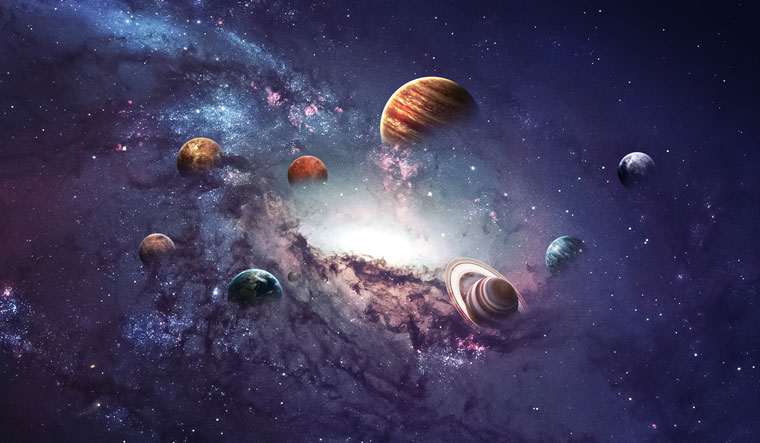The age of the universe has long been a topic of fascination and debate among scientists and cosmologists. For decades, astronomers have strived to unravel the mysteries of cosmic evolution, seeking to understand the origins, composition, and ultimate fate of the cosmos. In a groundbreaking discovery, recent evidence has upended our understanding of the universe’s age, suggesting that it may be twice as old as previously thought. In this comprehensive exploration, we delve into the latest findings that have reshaped our perception of cosmic history and ponder the profound implications of this revelation.
Unveiling the Universe’s Age: A Journey Through Time
The quest to determine the age of the universe traces back to the early 20th century when astronomers first grappled with the implications of Albert Einstein’s theory of general relativity. Einstein’s revolutionary equations predicted that the universe was dynamic and evolving, expanding or contracting over time. However, it wasn’t until the 1920s that astronomer Edwin Hubble provided compelling evidence for the expansion of the universe through his observations of distant galaxies moving away from Earth.
Building upon Hubble’s pioneering work, astronomers embarked on a quest to measure the rate of cosmic expansion, known as the Hubble constant, and extrapolate backward to determine the age of the universe. Over the years, various techniques, including measurements of the cosmic microwave background radiation and the distances to ancient stars and galaxies, have yielded estimates for the universe’s age, converging around a value of approximately 13.8 billion years.
However, in a remarkable twist of fate, recent observations of distant galaxies by the Hubble Space Telescope and other advanced instruments have challenged this long-held consensus, suggesting that the universe may be significantly older than previously believed. These groundbreaking findings have sparked excitement and intrigue within the scientific community, prompting a reassessment of our understanding of cosmic evolution and the nature of the universe itself.
Unraveling the Mysteries of Cosmic Expansion
At the heart of the debate over the universe’s age lies the elusive Hubble constant, a fundamental parameter that quantifies the rate of cosmic expansion. By measuring the distances to galaxies and observing their redshifts—the stretching of light due to the expansion of space—astronomers can infer the value of the Hubble constant and, by extension, the age of the universe.
Traditionally, astronomers have employed two primary methods to determine the Hubble constant: the cosmic distance ladder, which relies on measurements of nearby galaxies and supernovae, and observations of the cosmic microwave background radiation, the relic radiation from the Big Bang. While both approaches have yielded consistent results in the past, recent discrepancies between the two methods have cast doubt on the accuracy of previous estimates for the Hubble constant and, by extension, the universe’s age.
Intriguingly, the latest observations of distant galaxies using the Hubble Space Telescope have provided compelling evidence for a higher value of the Hubble constant than previously assumed. By refining the cosmic distance ladder and incorporating new calibration techniques, astronomers have arrived at a revised estimate for the Hubble constant, suggesting that the universe may be expanding at a faster rate than previously thought.
Implications for Cosmic Evolution and the Nature of the Universe
The implications of these new findings extend far beyond mere revisions to the age of the universe. If the universe is indeed older than previously believed, it could have profound implications for our understanding of cosmic evolution, the formation of galaxies and structures, and the nature of dark matter and dark energy—the enigmatic constituents that comprise the majority of the universe’s mass-energy content.
Moreover, a higher value of the Hubble constant could challenge existing models of cosmic inflation—the rapid expansion of the universe in the early moments following the Big Bang—and raise questions about the ultimate fate of the cosmos. Could the universe continue to expand indefinitely, eventually succumbing to a cold, dark fate known as the Big Freeze? Or might cosmic expansion eventually reverse course, leading to a cataclysmic collapse known as the Big Crunch?
Furthermore, the revised estimate for the universe’s age could have implications for the search for extraterrestrial life and our understanding of the conditions necessary for the emergence of life elsewhere in the cosmos. A younger universe would provide more time for the formation of planetary systems, the evolution of life, and the emergence of intelligent civilizations—an enticing prospect that fuels the imagination of astronomers and astrobiologists alike.
Conclusion: A New Chapter in Cosmic Exploration
In conclusion, the revelation that the universe may be twice as old as previously believed marks a paradigm shift in our understanding of cosmic history and evolution. As astronomers continue to refine their measurements and explore the mysteries of the cosmos, we are reminded of the boundless complexity and beauty of the universe we inhabit.
The quest to unravel the secrets of the cosmos is far from over, and each new discovery opens new avenues of exploration and inquiry. Whether probing the depths of distant galaxies, studying the echoes of the Big Bang, or contemplating the nature of dark matter and dark energy, astronomers stand at the forefront of human curiosity and exploration, pushing the boundaries of knowledge and understanding.
As we embark on this journey of cosmic discovery, let us embrace the wonder and awe-inspiring beauty of the universe and strive to unlock its deepest mysteries. For in the vast expanse of space and time, there are countless wonders waiting to be revealed, and the adventure of exploration beckons us ever onward.
Read More: Scientists Reveal New Findings About Older Adults Who Take Vitamin D
